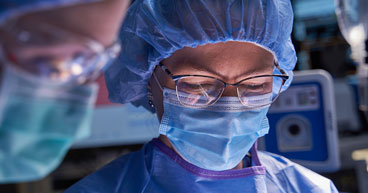
It’s been said that sitting is the new smoking. While researchers have concluded that’s probably an overstatement, being sedentary and sitting too much may lead to health issues, including obesity. And when it comes to cancer risk, obesity may indeed be the new smoking.
While smoking tobacco has decreased over the decades, Americans are getting more obese. According to the American Lung Association, smoking among adults in the U.S. has fallen 45 percent since 1997. Currently, about 14 percent of American adults are smokers. Meanwhile, the number of obese Americans has skyrocketed from 30 percent to more than 42 percent this century. The number of Americans with severe obesity has nearly doubled to 9.2 percent.
Researchers at the Rand Corporation have concluded that “not only does obesity have more negative health consequences than smoking, drinking, or poverty, it also affects more people.”
But exactly how does being obese lead to an increase in cancer risk? In this article, we’ll explore:
- Does obesity cause cancer?
- What is considered obese?
- Chart: Which cancers are linked to obesity?
- How does obesity affect cancer diagnoses and treatments?
- Cancer and obesity: Reducing risk
- Tips to help lose weight
If you’ve been diagnosed with cancer and are interested in a second opinion on your diagnosis and treatment plan, call us or chat online with a member of our team.
Does obesity cause cancer?
To be clear, smoking is still the leading cause of preventable cancer deaths in the U.S., according to the Centers for Disease Control and Prevention. Smoking causes about 20 percent of all cancers and 30 percent of cancer deaths.
Obesity, however, is linked to up to 8 percent of cancers. Together smoking and obesity are the two leading risk factors for cancer, according to the CDC. “Many things are associated with cancer,” the CDC notes, “but avoiding tobacco use and keeping a healthy weight are two of the most important steps you can take to lower your risk of getting cancer.
While some contributing lifestyle issues may also increase the risk of cancer, research suggests a direct cause-and-effect connection between obesity and cancer. Examples include those factors listed below.
Hormone production
Obesity wreaks havoc on the production of hormones, especially estrogen and insulin, that raise cancer risk. Fat cells, also called adipose cells, are “estrogen factories,” says Stephen Lynch, MD, Vice Chief of Staff at City of Hope® Cancer Center Phoenix.
“The more adipose cells, the more opportunity there is for the body to produce estrogen,” Dr. Lynch says. “And that's why you’re going to see an increase in risk of certain types of breast cancers—hormone receptor-positive breast cancers—in the postmenopausal women who have obesity. And obesity is clearly a risk factor for developing uterine cancer, which again, is something that we would anticipate, being an estrogen-driven cancer. So those correlations exist, and that's simply a fact.”
Insulin production
People who are obese may also develop a condition called hyperinsulinemia, in which the body produces increased levels of insulin. Some obese people also have higher levels of insulin, which may increase the risk for developing colorectal, kidney, pancreatic and other cancers.
Chronic inflammation
Fat cells may contribute to chronic inflammation. Under normal circumstances, inflammation develops as a reaction to injury or disease and is often a sign that the body is healing itself. But, over time, chronic inflammation may damage cellular DNA, which may lead to uncontrolled cell growth and the formation of tumors.
Hyperinsulinemia may also increase the risk of chronic inflammation.
“We know that many of the same factors that go hand in hand with obesity may also increase a person’s risk of cancer,” says Anthony Perre, MD, Vice New Patient Intake Physician at City of Hope Cancer Center Atlanta. “Part of the connection may be related to the adipose tissue itself. It may increase inflammation, and we know that inflammation plays an important role in the development of cancer.”
Cell regulation
Fat cells may affect the inner workings of proteins that regulate cell growth and division. This may cause cells to divide and grow out of control, eventually forming tumors.
Immune suppression
New research suggests that obesity may weaken immune cells found near tumor cells by altering their metabolism. These changes alter the immune cells’ ability to attack and kill the cancer cells.
What is considered obese?
The most common way to determine if a person has a healthy weight, is overweight or obese is to calculate his or her BMI, or body mass index.
The BMI is determined by a formula that is calculated by dividing a person’s weight in kilograms by his or her height in meters. The BMI formula: Weight ÷ height-squared x 703.
Chart: BMI categories
The American Medical Association (AMA) has cast some shade on the BMI as the sole determining factor of a person’s weight status. In a June 2023 statement, the AMA described the BMI as “an imperfect way to measure body fat in multiple groups given that it does not account for differences across race/ethnic groups, sexes, genders, and age-span.”
The BMI index should not be your only measure of obesity, Dr. Perre says. BMI may overestimate the degree of adiposity in people who are overweight but very muscular. BMI may underestimate adiposity in older people due to loss of muscle mass associated with aging.
Also, the tool was designed with data gathered mostly from white, non-Hispanic men and does not consider body type differences among people of different ethnicities, races and gender, the AMA says.
The bottom line: The BMI is a useful tool to determine if a person is at a healthy weight, but people should talk to their doctor about other factors, as well.
“It is important for physicians to understand the benefits and limitations of using BMI in clinical settings to determine the best care for their patients,” AMA Immediate Past President Jack Resneck, Jr. MD, says in the statement.
Chart: Which cancers are linked to obesity?
According to the CDC and the National Cancer Institute (NCI), obesity is linked to 13 cancer types. And, in some cases, the risk levels associated with obesity are significantly higher than in those who are at a healthy weight or even overweight, as illustrated in the chart below.
Other cancers linked to obesity include:
- Breast cancer
- Colorectal cancer
- Gallbladder cancer
- Head and neck cancer
- Meningioma
- Multiple myeloma
- Pancreatic cancer
- Thyroid cancer
How does obesity affect cancer diagnoses and treatments?
Obesity may not only increase cancer risk, but it may also complicate the diagnostic process, reduce the effectiveness of some cancer treatments and interfere with side effect management.
“Obesity may affect some of the diagnostic tests we use,” Dr. Perre says. “For instance, we may not get as good a picture from diagnostic imaging because of the excess adipose tissue. Obesity may also cause some technical challenges for radiation therapy. Surgery may be more complicated, and radiation has to pass through more tissue, potentially causing more collateral damage.”
Research shows that obese patients have poorer outcomes from cancer treatments than people who are not obese.
“Obesity can affect both the efficacy and toxicity of systemic cancer therapies, including chemotherapy, endocrine therapy, immunotherapy and targeted therapies.
An NCI-backed study by researchers in California found that fat cells may absorb and break down common chemotherapy drugs, reducing their potency. “By absorbing and breaking down the drugs, the fat cells may be removing the drugs from the immediate environment around tumor cells in bone marrow or other areas of the body where fat cells are plentiful,” researchers wrote. “This finding may help explain why obesity is linked to poorer outcomes in several types of cancer.”
Cancer and obesity: Reducing risk
Added to the level of cancer risk that obesity presents are factors that may cause obesity itself. Among them:
- Poor diet
- Alcohol use
- Lack of exercise
Conversely, eating a good diet, cutting out alcohol and exercising regularly may help to reduce body weight and cancer risk. These steps also help those already diagnosed with cancer.
“Improving overall health is simply going to put a person in a better place physically and emotionally,” Dr. Lynch says. “There are psychological benefits to exercise and it also helps to improve sleep.”
Tips to help lose weight
Many Americans find that losing weight is a frustrating battle. Americans spend billions on gym memberships, diet plans and weight-loss products. Yet, the number of obese Americans continues to grow. But weight loss doesn’t need to be dramatic to make a difference.
Among postmenopausal women, losing even 5 percent of their body weight, or 10 pounds on average, may lead to a lower risk of breast cancer compared to those who don’t lose weight, one study found.
Below are some tips that may help you lose weight and, as a result, help reduce your risk of cancer, diabetes and other weight-associated conditions.
Know what your goals are. Are you ready to lose weight now that you have a better understanding of the risks involved? Plan to lose no more than a half-pound a week for lasting results. Know what your ideal weight should be and how many calories per day you should be consuming.
Start right away. It typically takes time to gear up to lose weight. Losing too much weight too soon may cause other health problems.
Keep a log of your calories. Pay attention to how quickly calories can add up from afternoon snacks like coffee with cream and sugar.
Weigh yourself daily. Logging your daily weight helps you keep track of your progress.
Track your activity. Try a fitness-tracking device.
Incorporate a healthy diet. Slowly incorporate healthy foods that you enjoy. Rather than cutting out all your favorite foods, consider first just cutting back on them. Dr. Perre says diet is the primary factor in losing weight. But exercise can help keep the weight off. Both should be part of developing a weight-loss plan you’re better able to stick to.
“It’s tough to lose weight for a variety of reasons,” he says. “There are genetic reasons and social pressures. And those need to be addressed. But it’s important. Losing weight doesn’t just reduce your cancer risk; it may improve your overall health.”
If you’ve been diagnosed with cancer and are interested in a second opinion on your diagnosis and treatment plan, call us or chat online with a member of our team.



